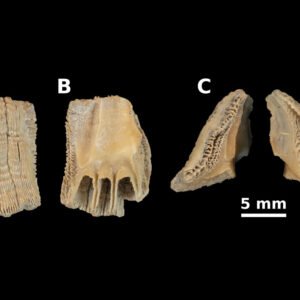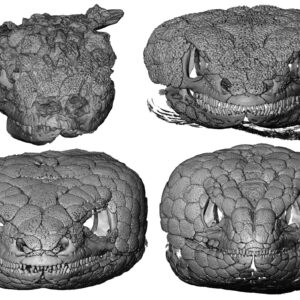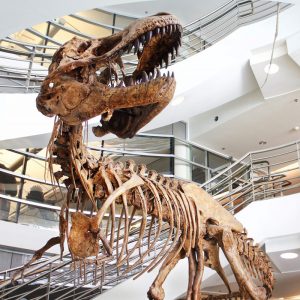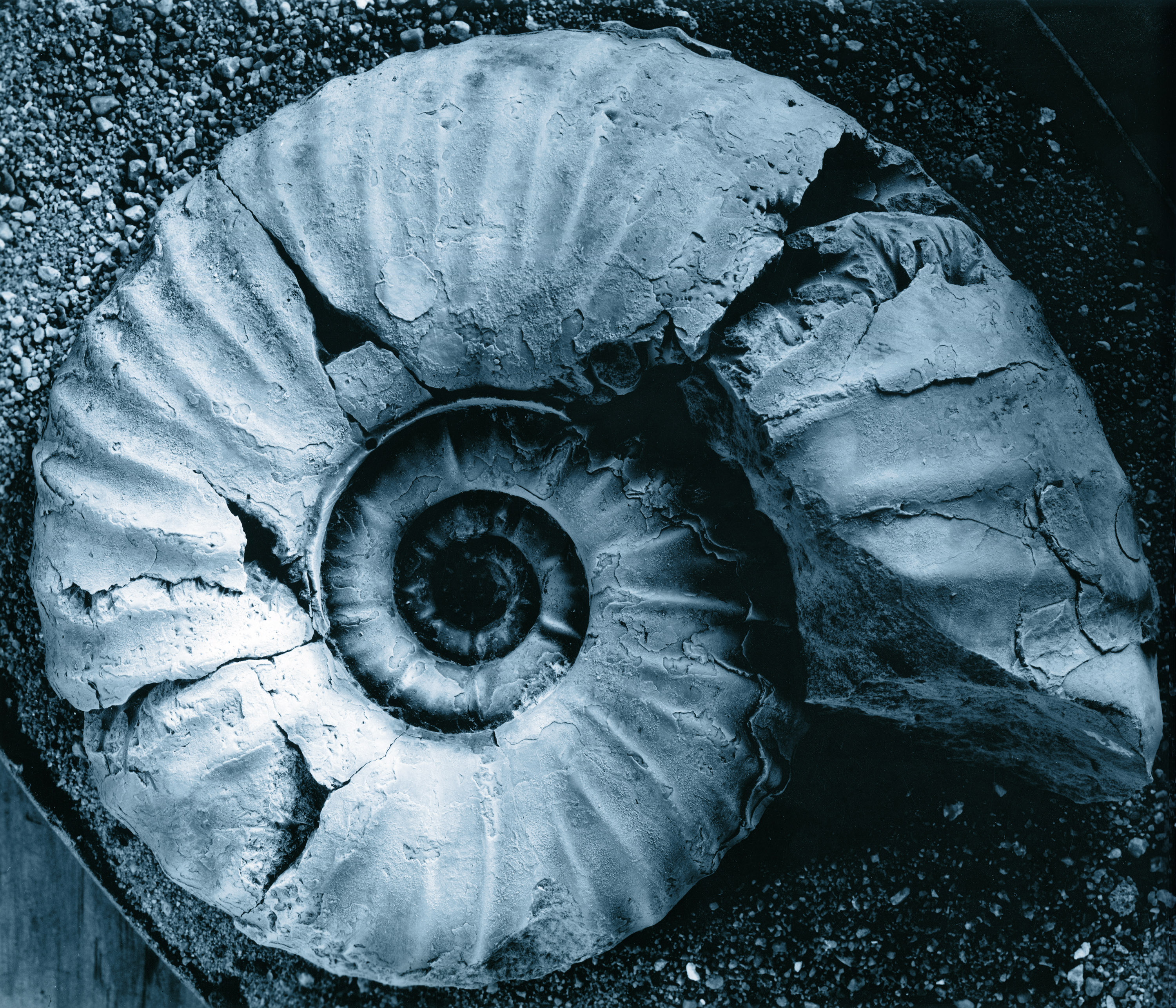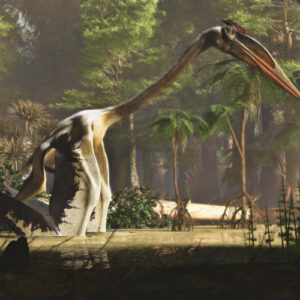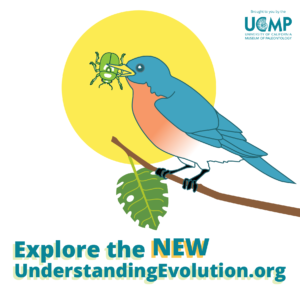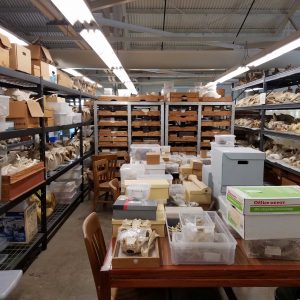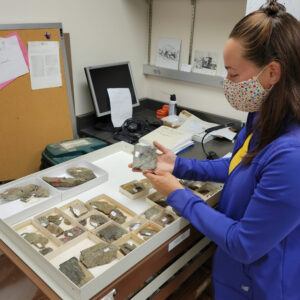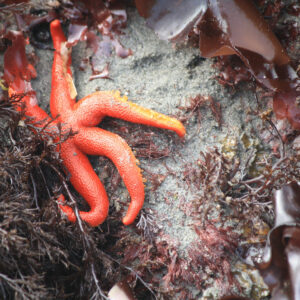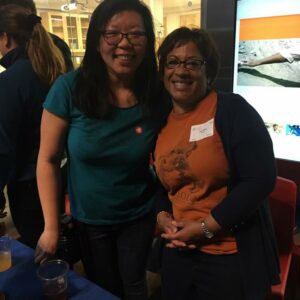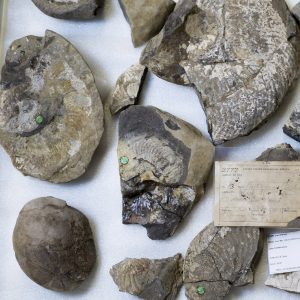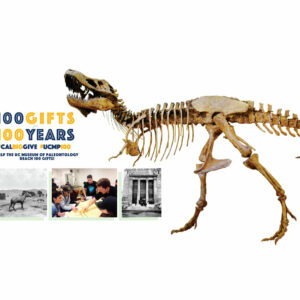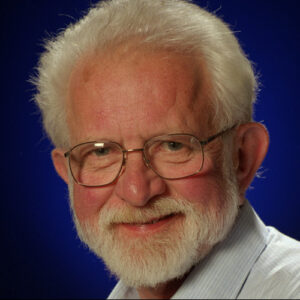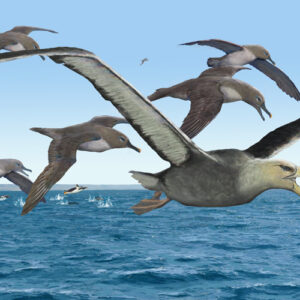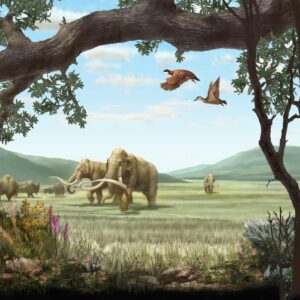Frankfurt, Germany is a museum town. Along the south side of the aptly named Main River are museums of Renaissance art, iconography, sculpture, design, and film. Each of the old waterfront mansions is home to treasures that spill out through their gardens and into the street, where today’s working artists sell pieces of equal beauty in the public market. It seems required that every footbridge across the river has a café and an accordion player at either end. North of the river is modern art, … [Read more...] about Life cycles: bringing new questions to old collections
Latest News
A forgotten cirripedological gem
Over 100,000 years ago, a barnacle grew on a whale, migrated with it for a year, and then dropped off onto the seafloor. Sixty-two years ago, it was found and placed in the UCMP collections. Fifty years ago a master's student studied it, but never published it. This week, that barnacle is finally published and given a name – Cetopirus polysyrinx. Whale barnacles are filter feeders who implant on the skin of a whale and live for about one year. A new species of whale barnacle from … [Read more...] about A forgotten cirripedological gem
Was this hyena a distant ancestor of today’s termite-eating aardwolf?
Curator and Assistant Professor Jack Tseng is co-author on a Vertebrata Palasiatica article describing a new genus and species of a small-bodied hyena from the Miocene of Gansu Province, China. The unique features identified in 12-14 million year fossil skulls shed new light on the ancestral history of modern termite-eating hyenas. Read more in Berkeley News. … [Read more...] about Was this hyena a distant ancestor of today’s termite-eating aardwolf?
First fossil of iconic alligator lizard is way out of range!
Alligator lizards of the genus Abronia are currently found in montane cloud forests and seasonally dry forests of Mexico and Central America. These physically striking and colorful lizards are popular among both scientists and the public and are increasingly recognized as conservation flagship taxa. A recent study by MVZ postdoctoral fellow and UCMP affiliate Simon Scarpetta and coauthor David Ledesma describes the first fossil and only recognized extinct species of Abronia. The fossil was … [Read more...] about First fossil of iconic alligator lizard is way out of range!
T. rex’s short arms may have lowered risk of bites during feeding frenzies
A recent paper by Curator and Professor Emeritus Kevin Padian in the journal Acta Palaeontologia Polonica, promotes a new hypothesis for T. rex’s short arm length. Follow his integrative approach to the often-asked question on T. rex arms that considers social organization, feeding behavior, and ecological factors as outlined in an article in Berkeley News. … [Read more...] about T. rex’s short arms may have lowered risk of bites during feeding frenzies
UCMP closed to visitors on Cal Day
The Museum of Paleontology will be closed to visitors on Cal Day. Unfortunately, we will not be conducting collection tours, speaker events or family friendly activities but we will have a table presence at Cal Day 2022 for new, incoming students. For more information please visit https://calday.berkeley.edu … [Read more...] about UCMP closed to visitors on Cal Day
Introducing: Where the Wild Things Were
It is clear, therefore, that we are now in an altogether exceptional period of the earth's history. We live in a zoologically impoverished world, from which all the hugest, and fiercest, and strangest forms have recently disappeared [...] - Alfred Russell Wallace, 1876, p. 150 The UCMP launched a pilot version of a new education and outreach resource for connecting Ice Age animal losses to today through interactive maps. This resource — Where the Wild Things Were — highlights the geographic … [Read more...] about Introducing: Where the Wild Things Were
Support the UCMP on #CalBigGive Day!
Next week on March 10, 2022, UCMP will be participating in the Big Give. The UCMP continues to focus on bringing science and paleontology to broader, more diverse audiences. Your gift during the Big Give drive will help UCMP sustain and enhance our award-winning web resources Understanding Evolution, Understanding Science, and Understanding Global Change and provide us with the flexibility to advance and innovate in producing new and engaging learning modules for … [Read more...] about Support the UCMP on #CalBigGive Day!
New Memoir on Quetzalcoatlus from Kevin Padian, Professor Emeritus
Kevin Padian, Curator Emeritus, co-edited a new Society of Vertebrate Paleontology Memoir on the Late Cretaceous pterosaur Quetzalcoatlus. The eight articles in the Memoir shed new light on bones collected from Big Bend National Park in the 1970’s by Douglas Lawson who would later obtain his PhD at Berkeley. The SVP Memoir is highlighted in Berkeley News. Data and interpretations from scientists and illustrations from artists provide fascinating information on pterosaur anatomy, movement, and … [Read more...] about New Memoir on Quetzalcoatlus from Kevin Padian, Professor Emeritus
New features for an old favorite
The Understanding Evolution website has stood the test of time. The site first launched in 2004, expanded into a premier resource for teaching and learning about evolution, and continues to attract millions of visitors a year. Now a modernized and enhanced Understanding Evolution is ready for the next generation of users. Funded by the Institute of Museum and Library Services, Understanding Evolution’s overhaul was based on guidance from scientific and teacher advisors, as … [Read more...] about New features for an old favorite
UCMP Collections access for fall 2021
The campus is now open for the Fall Semester (at least for now). If you wish to visit the collections for research purposes*, please contact the appropriate Museum Scientist. *The UCMP is not open to the general public. Please see our FAQs for more information. … [Read more...] about UCMP Collections access for fall 2021
Forgotten Fossils
Greeting you at the entrance of the University of California Museum of Paleontology (UCMP) is the ever-charismatic Nation’s T. rex, immediately grabbing your attention and drawing you in. Within the UCMP collections area your eyes dart to extinct marine reptiles lining the walls, plant fossils in the aisles with leaves larger than your torso, and woolly mammoth skulls tucked between cabinets. As a vertebrate paleontologist I’m captivated by these grand fossils, making it easy to overlook the … [Read more...] about Forgotten Fossils
Forty phyla in forty days
Marine invertebrate zoology in Friday Harbor, Washington Paleontologists speak of Friday Harbor Labs in the nostalgic tones reserved for only the best field stations. As I hopped off my ferry to the San Juan Islands, carried my duffel bag through the namesake harbor town, and stepped at last under the campus’ old-growth cedars, it was clear why. I came to take FHL’s flagship summer course, Marine Invertebrate Zoology, which surveys forty phyla in as many days. In the mornings, we … [Read more...] about Forty phyla in forty days
Thoughts on Anti-Asian Hate
Against the backdrop of the loss of life and devastation brought on by COVID-19 and the senseless murders of George Floyd, Breonna Taylor and Daunte Wright, we are also witnessing an escalation in the number and severity of anti-Asian hate crimes. These attacks are compounded by the racist and xenophobic rhetoric of the recent administration that used the terms “China Virus” and “Kung-Flu” to describe the global pandemic. As a first generation Asian American who grew up in the Bay … [Read more...] about Thoughts on Anti-Asian Hate
UCMP Collections access update
Campus is currently closed to non-campus affiliates but is planning for in-person instruction in the Fall, 2021. For people wishing to visit the collections UCMP does not yet have a precise opening date, but we do not plan to open before September 2021. For updates, please check the Collections page. If you have loans to return, please contact the appropriate collections person BEFORE SHIPPING. … [Read more...] about UCMP Collections access update
UCMP celebrates 100 years
The UC Museum of Paleontology turns 100 this year! As part of this celebration, we’d like your support to help us reach 100 Gifts to celebrate our 100 Years, with the goal of making a significant contribution to our Education and Outreach Fund. Your gift to this fund will support expansion of our education and outreach efforts, helping us to reach broader, more diverse audiences On March 14, 1921, the museum was officially founded when the campus accepted a generous sum from our benefactor, … [Read more...] about UCMP celebrates 100 years
Access to the UCMP Collections remain restricted
Due to the ongoing COVID-19 pandemic, the UC Berkeley campus continues to be closed with access to the UCMP collections not possible. The UCMP staff continues to work from home and are not processing outgoing loans at this time. If you have loans to return, please contact the appropriate collections person BEFORE SHIPPING. The university has informed us to anticipate working remotely through June 30, 2021. We expect the collections to remain closed to outside researchers until at … [Read more...] about Access to the UCMP Collections remain restricted
William Clemens, expert on fossil mammals, dies at 88
Bill Clemens had been excavating fossils in eastern Montana’s Hell Creek Formation for more than 10 years, focusing primarily on the small mammals that scurried around the feet of dinosaurs and other Mesozoic Era creatures, when, in 1980, Walter and Luis Alvarez at the University of California, Berkeley, proposed that the dinosaurs and most of life on Earth were wiped out at the end of the Mesozoic by an asteroid or comet impact. As a paleontologist who had unearthed myriad fossils from … [Read more...] about William Clemens, expert on fossil mammals, dies at 88
Antarctica yields oldest fossils of giant birds with 21-foot wingspans
Fossils recovered from Antarctica in the 1980s represent the oldest giant members of an extinct group of birds that patrolled the southern oceans with wingspans of up to 21 feet that would dwarf the 11½-foot wingspan of today’s largest bird, the wandering albatross. Called pelagornithids, the birds filled a niche much like that of today’s albatrosses and traveled widely over Earth’s oceans for at least 60 million years. Though a much smaller pelagornithid fossil dates from 62 million years … [Read more...] about Antarctica yields oldest fossils of giant birds with 21-foot wingspans
What was the Ice Age like in the Bay Area?
What was the Ice Age like in the Bay Area? That's the question a Half Moon Bay middle-schooler posed to KQED's Bay Curious podcast. Retired professor Doris Sloan and Museum Scientist Patricia Holroyd talk with KQED's Dan Potter about the landscape and animals present here during the last Ice Age and reveal some surprising fun facts. Listen to the podcast … [Read more...] about What was the Ice Age like in the Bay Area?

